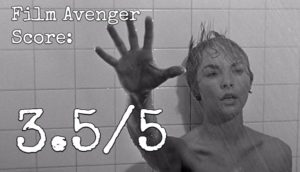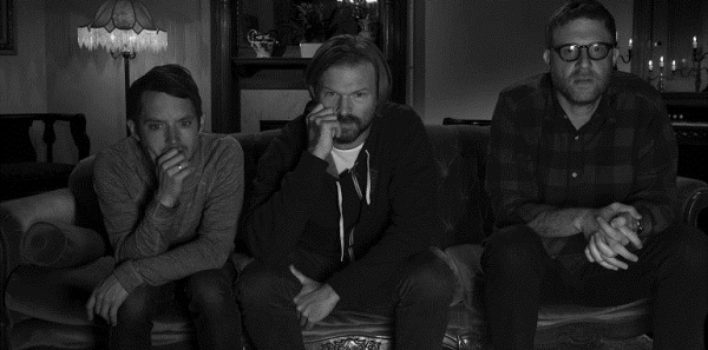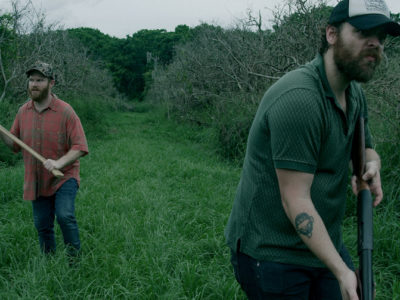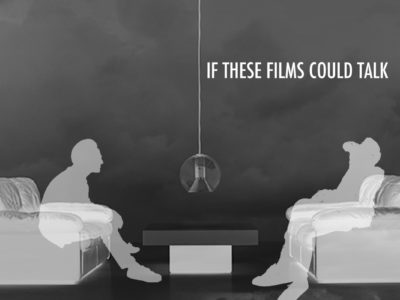Review | 78/52
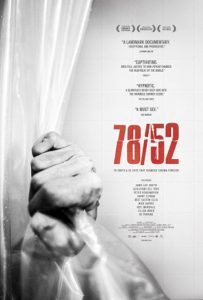 The infamous “shower sequence” in Psycho takes place in less than five minutes of screentime. The purported heroine (and headlining star) of the film was brutally murdered before the eyes of the audience in one of the most vulnerable positions imaginable, leaving the crowd narratively disoriented, without a sympathetic character to follow (for now).
The infamous “shower sequence” in Psycho takes place in less than five minutes of screentime. The purported heroine (and headlining star) of the film was brutally murdered before the eyes of the audience in one of the most vulnerable positions imaginable, leaving the crowd narratively disoriented, without a sympathetic character to follow (for now).
That is the genius and historical significance of the shower scene in Alfred Hitchcock’s 1960 masterpiece. That scene literally changed how movies were made and ushered in a completely new sub-genre of horror films (though the latter was not Hitch’s intention). And the shower scene is the subject of a new documentary called 78/52 – taking its name from the 78 shots and 52 cuts that comprise that scene.
This film takes the scene apart, sometimes frame-by-frame, and has an interesting panel of film experts and Hitchcock admirers analyze the scene on an artistic, stylistic and cultural level. For fans of Hitchcock, and film generally, this is a must-see. 78/52 goes into a lot of detail to help the viewer understand why that five minutes of the film changed things so much – both for the better and worse.
What interested me the most about 78/52 were the thematic insights I heard. The experts interviewed looked at the shower scene as a reflection of American culture’s impending fragmentation, as well as the Master of Suspense’s uncompromising vision of justice.
The Good: A Masterful Master Class
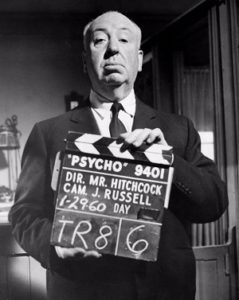 As alluded to above, 78/52 is an entertaining master class in film-making and a love letter to the genius of Alfred Hitchcock and his collaborators on Psycho. On nearly every creative level, Hitch changed the way his audience looked at him. Coming off the Technicolor triumph of North by Northwest, both spectator and critic figured they had Hitch pegged as a director of spectacle pictures.
As alluded to above, 78/52 is an entertaining master class in film-making and a love letter to the genius of Alfred Hitchcock and his collaborators on Psycho. On nearly every creative level, Hitch changed the way his audience looked at him. Coming off the Technicolor triumph of North by Northwest, both spectator and critic figured they had Hitch pegged as a director of spectacle pictures.
Psycho was a splendid sucker-punch – a decidedly low-budget, black-and-white almost grindhouse-level flick that would have been forgotten in a few years had it been done by any other director. Hitch wanted everyone to make sure they knew he could still surprise them.
78/52 director Alexandre Philippe populated his master class with a superb panel of experts from all areas of filmmaking – and for the most part, they all had very interesting things to say. There were directors, cameramen, editors, authors, film professors, actors, and many others. This gave the film an extremely comprehensive outlook (something few documentaries outside of Ken Burns’ accomplish), which made it really fascinating to watch. I felt like I learned a lot of useful information about how films are constructed and why they are so effective.
 I especially enjoyed the commentary of members of the crew of the ridiculously unnecessary 1998 remake of Psycho – especially legendary composer Danny Elfman’s remarks about what original Psycho composer Bernard Herrmann might have thought of his version of Herrmann’s score.
I especially enjoyed the commentary of members of the crew of the ridiculously unnecessary 1998 remake of Psycho – especially legendary composer Danny Elfman’s remarks about what original Psycho composer Bernard Herrmann might have thought of his version of Herrmann’s score.
In the very best tradition of clever homage, Philippe has crafted his documentary to invoke the look and feel of its subject matter. All of the interviews were shot in black-and-white, in rooms that resembled ones found at the Bates Motel. It made 78/52 feel like it was made by a film fan and great admirer of Psycho and Hitchcock. Even the original music by Jon Hegel was performed with all strings, just like Herrmann’s classic score.
The Bad: Recreating and Meandering
As with a lot of documentaries done by geeky admirers of the subject, 78/52 gets caught in the “this thing is this awesome” trap. There’s far too much gushing and geeking out by the interviewees (even to the point where we watch them watching the scene). For some of the interviewees, like editor Walter Murch, this is understandable because he’s looking at the sequence as an editor and commenting on the way the scene is cut. But it doesn’t make any sense to see a horror movie director saying “this is awesome” again and again.
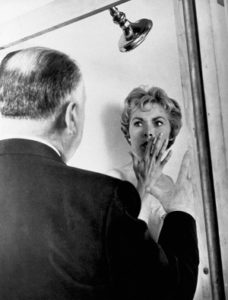 This geeking out really contributes to the film’s meandering pacing. Philippe gave 78/52 a thin narrative structure that makes no sense at times. It seems to begin well enough (although the introduction bled into the actual start of the documentary), but it then frustratingly ebbs back-and-forth between straightforward film criticism and geekfest. I’m confident there could have easily been 10 to 15 minutes shaved off of the runtime. And on top of all that, the film just ends with no real wrap-up. I caught myself saying out loud “oh, it’s not ending there.” But it did.
This geeking out really contributes to the film’s meandering pacing. Philippe gave 78/52 a thin narrative structure that makes no sense at times. It seems to begin well enough (although the introduction bled into the actual start of the documentary), but it then frustratingly ebbs back-and-forth between straightforward film criticism and geekfest. I’m confident there could have easily been 10 to 15 minutes shaved off of the runtime. And on top of all that, the film just ends with no real wrap-up. I caught myself saying out loud “oh, it’s not ending there.” But it did.
I don’t understand why Philippe chose to re-shoot some scenes from Psycho in the opening of 78/52, using an actress who looks very little like Janet Leigh. When the film delved into how the shower scene differs from the one in the original novel, it was warranted and effective to include a dramatization of the novel’s version. But that first sequence with the actress was unnecessary. Philippe was better off using footage from the actual film with Janet Leigh. The actress was a distraction. Perhaps it would have worked better if it was just shots of the icons in the rain (the Bates house, the motel, the car, etc.) with no people.
What Does the Shower Scene Mean?
The interviewees in 78/52 brought with them not only their technical and storytelling expertise to explain the significance of the shower scene. They also postulated thematic and philosophical ideas behind the scene and Psycho as a whole. Most were very insightful – ideas that I had never really thought of while watching the film.
Director Guillermo Del Toro had a particularly poignant insight into Hitchcock’s worldview and his possible outlook on how evil should be dealt with. Del Toro observed that Hitch’s films are filled with an uncompromising sense of justice. In not just Psycho, but all his films, sins committed are often punished and punished harshly. Attempts may be made to set things right, as in Marion Crane’s decision to return the money she stole before she was murdered out of left field. But in the end, all sin cannot be purged in Hitch’s universe except with blood.
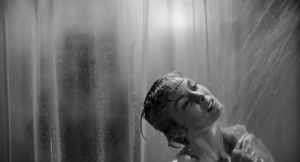 Del Toro pegged Hitch’s cinematic moral outlook on the director’s Catholic faith, but Del Toro remarked about faith very derisively, as if it was an extreme view. Perhaps in today’s increasingly secular culture, it is.
Del Toro pegged Hitch’s cinematic moral outlook on the director’s Catholic faith, but Del Toro remarked about faith very derisively, as if it was an extreme view. Perhaps in today’s increasingly secular culture, it is.
All Hitch was doing was displaying the truth of the nature of sin in accordance with the righteous God in which he had faith. He just conveyed it in a very shocking and creative way. He didn’t revel in it; he knew it made for great drama and suspense.
“For the wages of sin is death, but the gift of God is eternal in Christ Jesus our Lord.” – Romans 6:23
It is true that God’s law is perfect and uncompromising. There is no wiggle room. All sin, no matter how small or seemingly insignificant, are offenses against God, and punishable by eternal separation from the Lord – a spiritual death after the physical death. And sin must be atoned through blood and sacrifice.
But just because God’s law is uncompromising doesn’t mean He doesn’t love us or seeks another way for us to be with Him. God paid the blood cost of our sin when Jesus went to the cross and died for the sins of all men. We can all be forgiven for our transgressions if we accept the Lord’s gift of salvation.
So What I’m Trying to Say is
78/52 is a great documentary that really gets into the minutiae of the shower scene in Psycho, remarking on what that five minutes have done for film as an art form, elevating it to a higher level and at the same time cheapening it by inadvertently spawning the “slasher” horror genre.
The uncompromising vision of justice displayed by Hitchcock reminds us of God’s absolute law – that sin is grounds for death, and only blood can wash away its stain. God, in His love, has covered our sins in the blood of His Son and washed us clean in the process. He is both just and good, and that’s why God is awesome.
